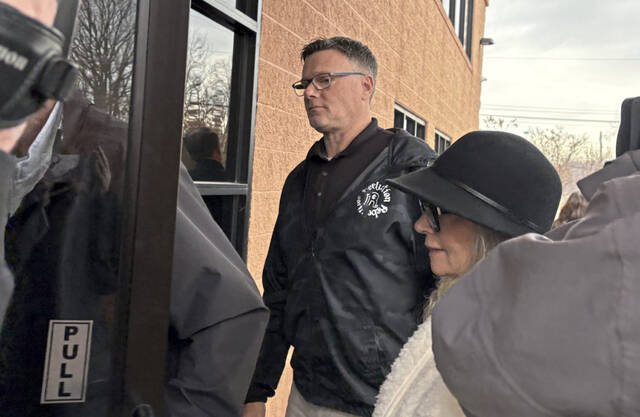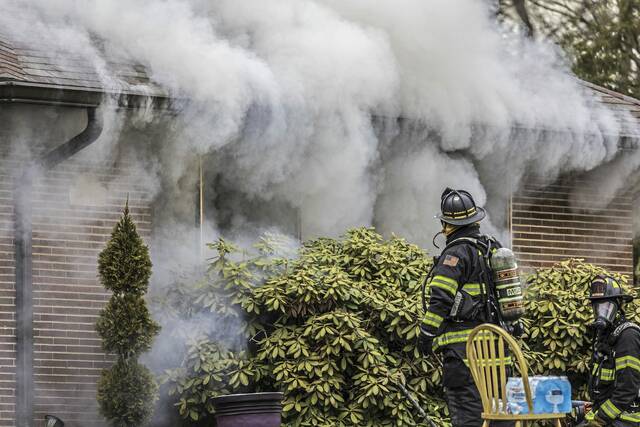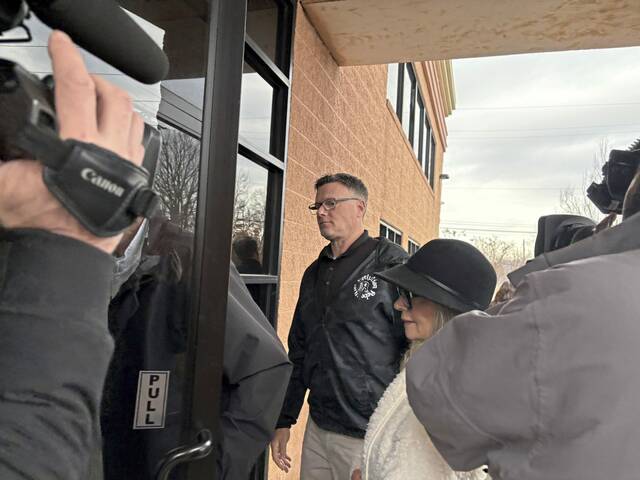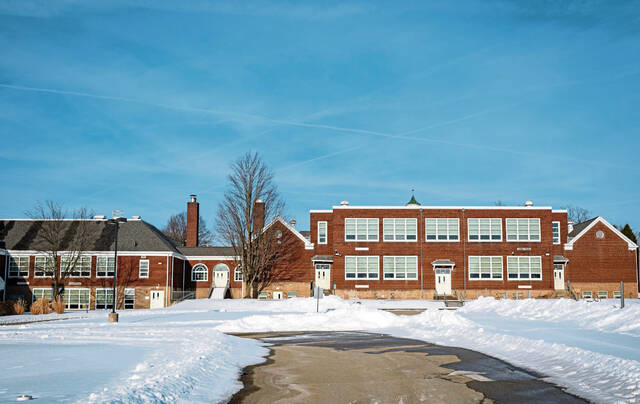Penn State’s New Kensington and Fayette campuses — as well as five other branch campuses statewide — will cease to exist in two years.
The university’s board of trustees voted, 25-8, on Thursday evening in a virtual meeting to close the New Kensington, Fayette, DuBois, Mont Alto, Shenango, Wilkes-Barre and York campuses. The Spring 2027 semester will be their last.
Penn State will continue to invest in its Beaver, Greater Allegheny, Hazleton, Schuylkill and Scranton campuses. They were among the campuses considered for closure when Penn State announced the pending move in February.
It’s a decision many university trustees said will be the biggest vote they’ll make during their tenures on the board.
President Neeli Bendapudi told the trustees at a livestreamed online meeting that, while she understood the decision would be difficult, it is necessary to move Penn State forward.
Penn State is facing significant challenges including declining enrollment, flat state funding and increasing operational costs, leading to the decision to consolidate, Bendapudi said.
“These campuses have changed lives,” Bendapudi said. “They’ve fueled business, and they brought Penn State into their communities.
“That passion does not change the reality that we must contend with. Maintaining the status quo is not sustainable.”
No one at the Commonwealth Campuses is to be blamed for the situation they’re in — in fact, quite the opposite, Bendapudi said — but the numbers tell a different story.
All seven campuses slated for closure lost money last year, university officials say, and have seen their enrollments decline drastically.
Those demographics aren’t going to get better, Bendapudi said — birth rates have declined since 2008, and college enrollments are going to drop not only in the state but nationally.
According to Penn State, closing those seven campuses will save about $50 million annually and clear out about $200 million in maintenance backlogs at the campuses.
Together, the campuses enroll 3.6% of Penn State’s students and employ 3.4% of its faculty and 2.2% of its staff.
“We are spreading our students, faculty and staff so thin that we jeopardize the quality of education and the support that we can offer,” Bendapudi said. “We are subsidizing decline at the expense of growth.”
Trustees supportive of the recommendation to close said that, while difficult, it was their fiduciary responsibility to look at the finances of the campuses.
They contend closing the campuses still upholds the Penn State land grant mission and will utilize resources to better provide opportunities for students and faculty. University officials said that, even with the closures, Penn State still has the largest statewide footprint of any university in the Big Ten Conference and of any land grant institution in the country.
“Keeping underutilized campuses open despite shrinking enrollment is not sustainable,” said Trustee Brandon Short, who noted how impactful the Greater Allegheny campus was to him when he was growing up in McKeesport.
“We free up critical resources that we can reinvest in the campuses that can remain open and expand academic offerings and enhance student experience.”
“I love Penn State. Penn State changed my life, and I want it to continue to change peoples lives for generations to come,” Short said. “This vote is about making the tough decision today to ensure a brighter future for Penn State.”
Bendapudi confirmed Penn State will fully support the campuses that remain open and, for campuses that close, university officials will work to “repurpose” those properties along with personalized transition support for students, faculty and staff.
Outlets like The Corner Launchbox and the Digital Foundry will continue to have a presence in the communities where Penn State campuses will close, Bendapudi said.
Trustees against closures — Ted Brown, Donald Cairns, Barry Fenchak, Chris Hoffman, Anthony Lubrano, Jay Paterno and Nicholas Rowland — said they wanted additional time to gather more information and public input.
Lubrano read a letter from Kevin Snider, chancellor emeritus of Penn State New Kensington, that outlined PSNK’s innovation and strategies to benefit the community, develop high-growth programming and define future readiness education for the digital age.
“Closing them now preempts precisely the revitalization we say we want for the Commonwealth Campus ecosystem,” Rowland said. “We owe them more than closure. … We owe them a fair chance to adapt and some chance to thrive.
“This vote, in my view, cuts short that opportunity that’s before us, and that seems to be outpouring into our inboxes every day.”
Board chairman David Kleppinger said he received more than 150 public comments this week related to the campus closure vote, in addition to hundreds over the past months.
“While this decision was not easy or unanimous, I strongly believe the final direction we have taken is in the best interest of Penn State and the commonwealth,” Kleppinger said in a statement after the meeting. “Part of the power of Penn State’s Commonwealth Campuses is that students from all parts of Pennsylvania have access to the same world-class degree, closer to home.
“This decision — while challenging for this board, and difficult for members of impacted communities — ultimately supports the continuation of our mission to provide Pennsylvanians with access to high-quality education, even in a changing environment.”
Kleppinger said most comments the board received highlighted the number of first-generation and economically disadvantaged students that attend Commonwealth Campuses, and the campuses’ roles in workforce development and economic development in the communities they serve.
Comments also questioned Penn State’s land grant mission in closing campuses, and a perceived lack of transparency around the recommendation, wanting more stakeholder engagement.
“I know this is difficult,” Bendapudi said. “But I also know it’s the right moment for courageous leadership — not to retreat but to reposition us for the next century.”








